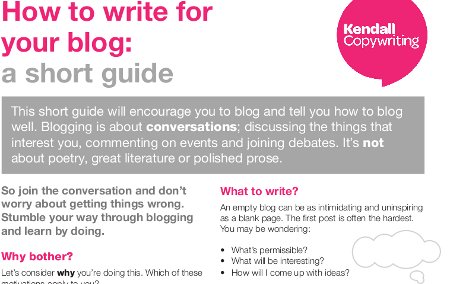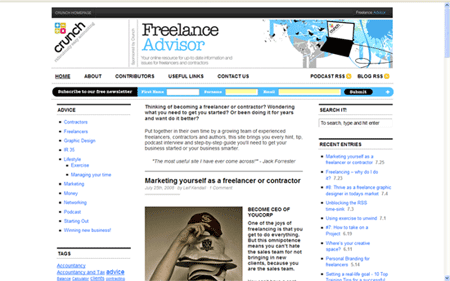Your website isn’t enough.
Finding customers online is tough, and a website alone isn’t enough to drive enquiries to your inbox.
That’s why I’ve stopped just writing copy for websites.
It was too frustrating.
And it didn’t really make a difference for my clients.
Don’t get me wrong – the copy on your website is immensely important. Your copy does the hard work of appealing to potential customers, explaining your value and spurring people to take action.
Great copy is essential.
The trouble with just writing copy for websites is that it takes more than great words to do business online.
You can’t convince people to buy your stuff if nobody is finding your website.
You have to reach out.
You have to draw people in.
You have to build a bridge between your website and the world around you.
In the past, I would write copy for my clients, it would get added to their website, everyone would breathe a sigh of relief, delighted that the website was complete.
And nothing would happen for months.
Nobody would update the website.
The new social media profiles would gather dust.
The first and last article on the new blog would probably be a scintillating update about the new website.
I would inevitably check back to see how my client was doing. The new website still looks great, but there are no signs of life. No new articles. No new pages. No changes. No tweets. No updates on Facebook or LinkedIn. No emails from the company. Nothing.
My clients never had the time to manage the new channels they had created. They suddenly needed articles, social media updates, newsletters – and the skills to create and publish content for all – when they were already at capacity with their existing workload.
Digital content marketing services
Having a blog and a social media presence are no longer seen as optional components of your online activity.
Your blog gives people a window into your company – and improves your search engine performance.
Your social media channels keeps your name bubbling up in conversations.
Monthly newsletters are a simple way to remind your customers of the good work that you’re doing.
Events and webinars are a simple way to show people your products and share your knowledge – and bring people closer to your company.
And these are all things that I can help you produce.
I can work with you to create great content.
Or I can do it all.
I can generate ideas.
Write articles.
Source images.
Publish them on your website.
Share them on social media.
Create graphics.
Produce webinars.
Build and send emails.
Need help with your digital marketing? If you need someone to take these tasks of your desk, get in touch.
We’ll make your online marketing happen like clockwork.







